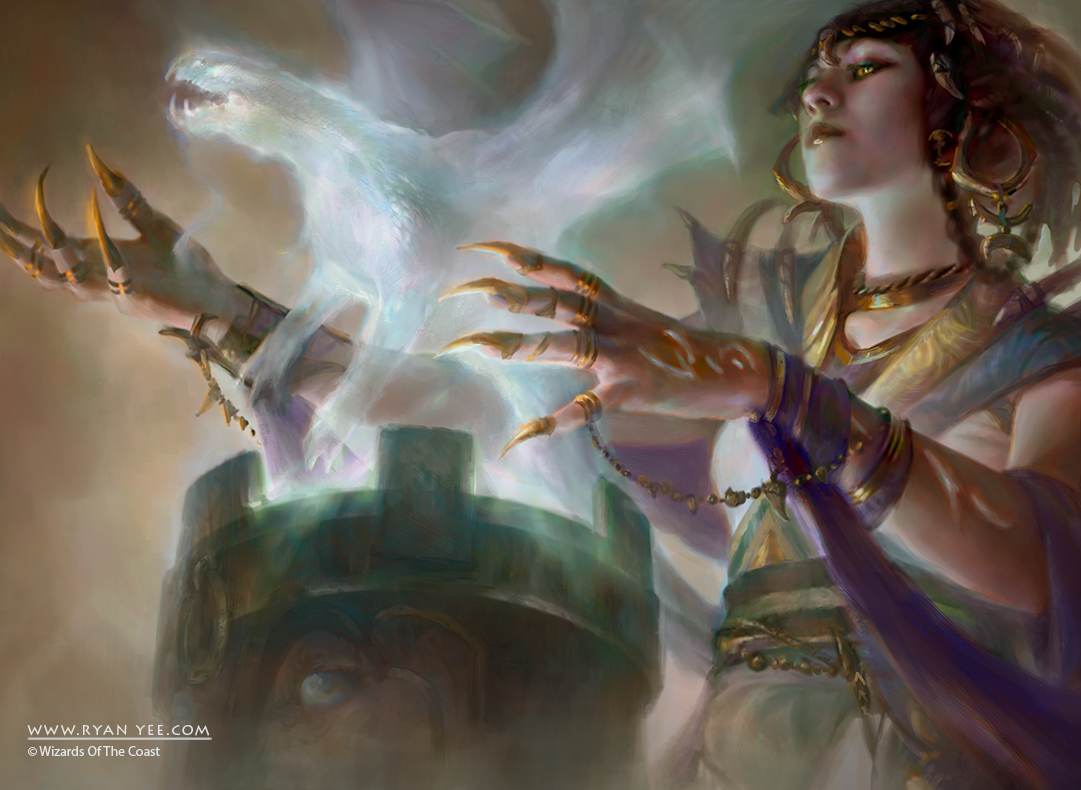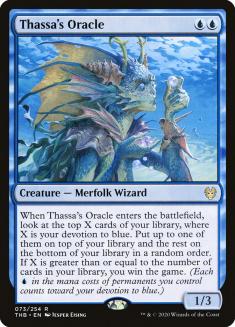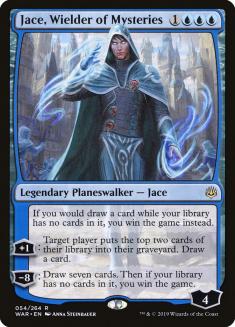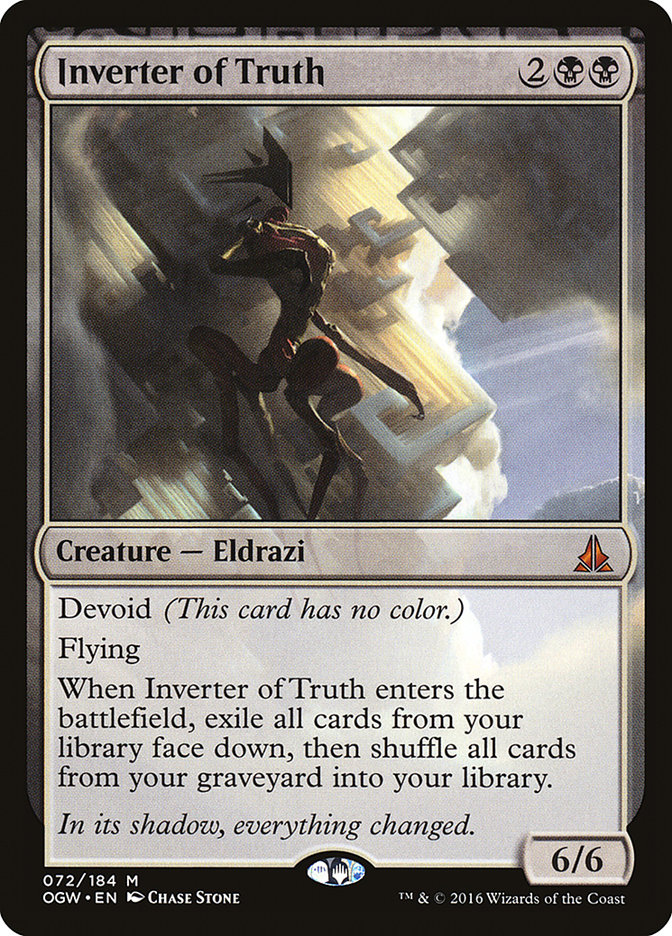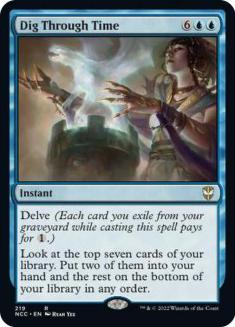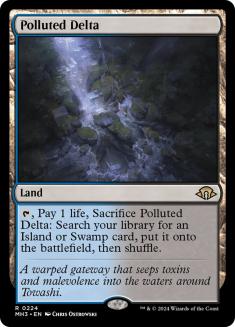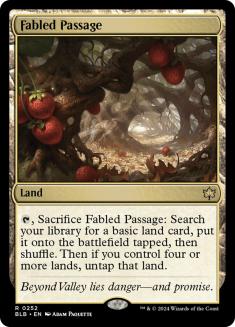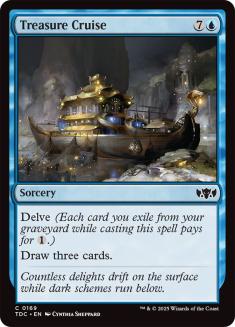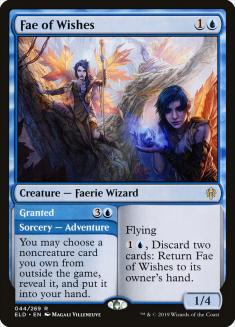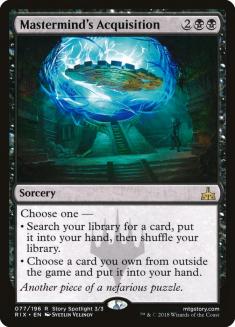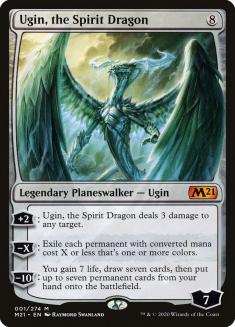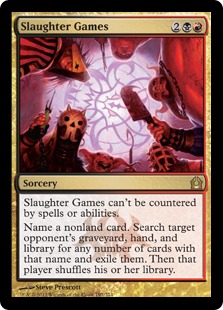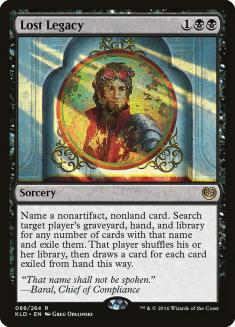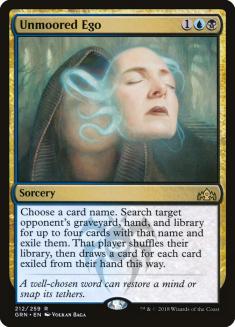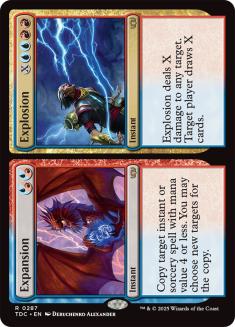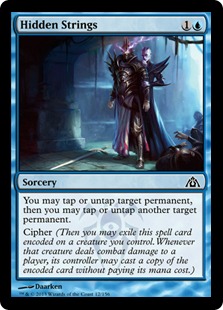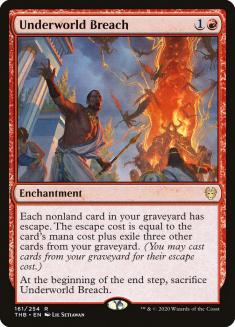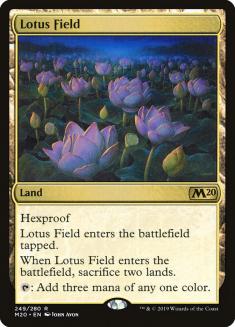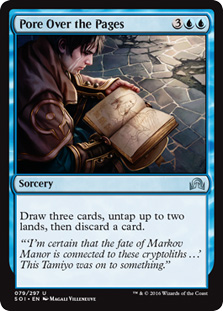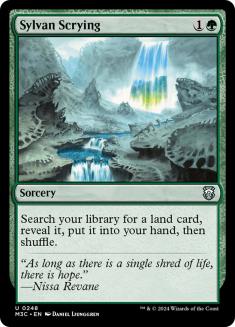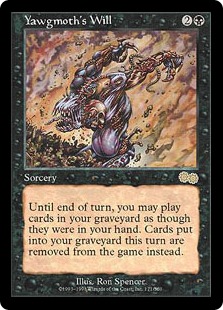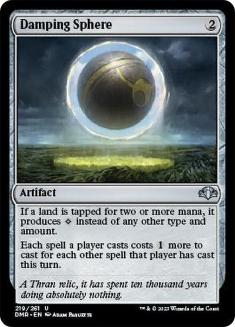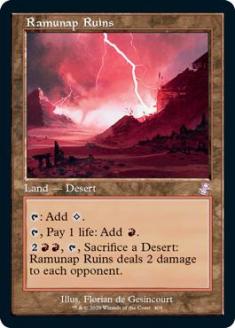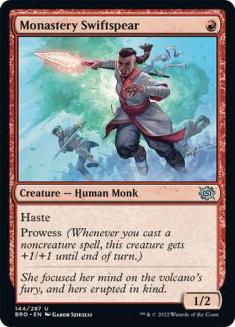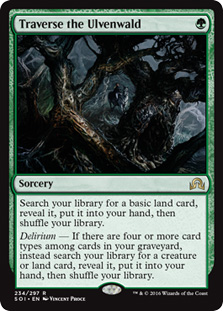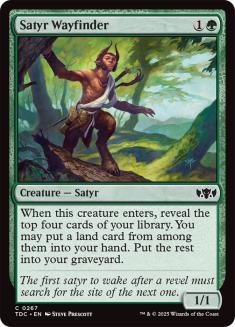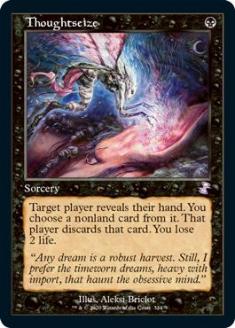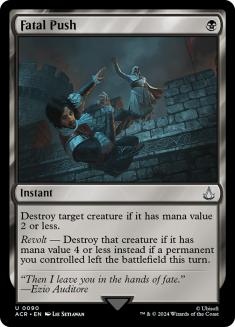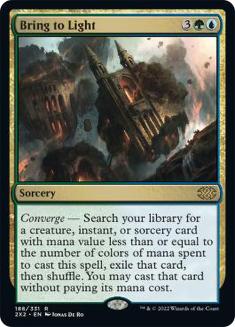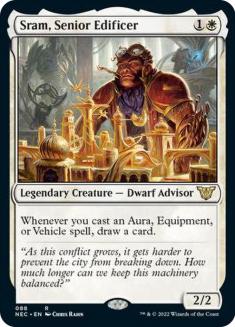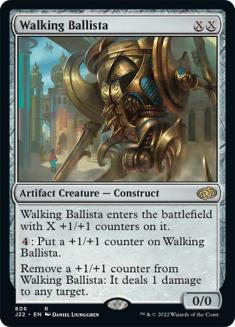There couldn’t be a more fitting final matchup for this past weekend’s third act of Pioneer Players Tours. Dimir Inverter VS Lotus Breach. Two different decks that seek to run themselves out of cards in order to pull off a combo kill.
Obviously, the printing of Thassa’s Oracle contributed to an increase in efficiency, but neither it nor Jace is the problem. That’d be like getting mad at Fireball when it teams up with Channel.
There are definitely going to be people that are going to complain about people talking about bans, implying that “Nowadays, everybody just wants cards banned instead of giving the metagame time to adapt.” Okay, first of all, y’all noticed the Banned List for this brand new format getting updated half a dozen times in the past couple of months, right? The Banned List isn’t about solving problems that can’t be solved any other way. It’s a tool for game design aiming to help bring about a more diverse and more fun experience.
Here are a couple of reasons to potentially ban cards in a format, despite the possibility of a metagame “adapting” to something.
- One or more decks are so omnipresent, the format feels more repetitive than desired.
- One or more decks are so warping, they limit the range of what kinds of strategies are playable to an unacceptable degree.
Pioneer is a format with much weaker interaction than Modern.
And that’s okay.
You see, the past seven years of interaction is a pretty diverse and well-balanced mix. Aside from Thoughtseize, the format actually has a pretty diverse mix of interaction at the top. Getting to play the best of the past seven years is clearly stronger than having access to just the last two, but these interactive cards don’t scale the way combo cards do. The more cards in a format, the more possible interactions, some of which may be so powerful as to warp the format around them.
Inverter of Truth was always the type of card that was going to be busted eventually. It was only a matter of time. It has a profound effect on the game that on its face is terrible, but under the right circumstance, with the right interaction, would be unbelievable. This, in and of itself, isn’t a bad thing. However, depending on how powerful the interaction is, depending on how replayable the games are, depending on how satisfying of gameplay is involved, this can get old.
It’s not that there’s no counterplay to Inverter of Truth. You could counter it, use a discard spell, or race it. You could focus on trying to kill Jace or Thassa’s Oracle at just the right moment. You could exile it from their library or implement a variety of clever tactics that run them out of cards at just the right moment.
The problem is that you have to use a lot more interaction for fighting them, and at just the right times. Meanwhile, they have among the best interaction and draw smoothing in the format, and a lot of access to interactions that circumvent almost every type of battle that could take place in the format.
Let’s take a look at champion Corey Burkhart’s Inverter list for a moment:
Creatures (8)
Planeswalkers (3)
Lands (20)
Spells (29)

It’s not that there’s anything inherently wrong with this style of deck (aside from featuring a little less red mana than most Grixis decks). It’s just that this use of Inverter of Truth is too strong for the quality of interaction available in the format, particularly how repetitive the games can be when you realize how much doesn’t matter anymore. And that’s kind of the main problem. Inverter of Truth is extremely reliable, powerful, and makes most of the possible things that could matter not.
It’s not that this event was in North America. Inverter reached the finals of Brussels, and there were five Inverter decks in the Top 8 of Nagoya. This strategy was already the defining deck of the format going into this weekend.
Why not ban Thassa’s Oracle and Jace, Wielder of Mysteries?
That is one possible way to do it, sure, but even if you ban both of those cards, there is a very real risk that Inverter of Truth will break again in the future. It sort of comes down to which you believe is more likely to be a part of desirable strategies: Thassa’s Oracle and Jace or Inverter of Truth? So long as you allow Inverter of Truth in the format, you might be committed to needing to be extra careful with every card that lets you win by way of having little to no library. So long as you allow Thassa’s Oracle and Jace, you might be committed to needing to be extra careful with every card that lets you get rid of your library.
Spoiler: You’ll have to be careful with cards and interactions that let you mill or exile your deck anyway.
Maybe you believe banning Thassa’s Oracle would do enough to slow down the Inverter deck, to make it more fragile. That might be true, and it might be enough. The question I’d ask is, how much does this Inverter deck helping define the format add to it? Is that world more replayable long-term?
I’d understand if they tried to handle it that way, and it might be fine. I just think the Inverter experience can live on in Modern, with all the other busted combo decks. Pioneer is a different animal. It doesn’t have to be defined by the fastest combos and trying to keep them down with sideboarding.
What about the enablers?
One enabler stands head-and-shoulders above the rest here. Dig Through Time is arguably the strongest card in the format and is an interesting experiment in what might be permissible in a format without fetchlands.
For what it’s worth, I’m not sure I like the effect Fabled Passage has on the format. Maybe it’s at a power level that limits just how much shuffling it contributes to, but it does kind of blunt some of the upside of a “no-fetchland format, saving the world time that would have been wasted shuffling.”
Anyway, Dig Through Time is clearly the strongest card in the Inverter deck, and I think you could make a reasonable argument to ban it and leave the rest of the deck intact. After all, if it’s not this deck, it’ll probably be another deck that breaks Dig Through Time.
One of the problems that comes up with banning Dig Through Time is how much you could use Treasure Cruise as a replacement. Yeah, you could just ban both, but then the experiment is over and the genuinely fun gameplay that goes along with these two powerful card draw spells is gone.
If they banned Dig Through Time, I would totally understand, but given how much it could help some of the decks that need help the most, I do think it’d bring a lot of collateral damage. Control isn’t exactly in a good place in Pioneer, and Dig Through Time is one of the few bright spots for this entire class of strategies. Additionally, as far as cards that can help set up combos go, Dig Through Time has a lot more dynamic of gameplay and a lot more interactivity than most.
Personally, I think I’d lean towards just banning Inverter of Truth and leaving the rest of the cards intact. Yeah, this takes this strategy out of the format; but it’s still something you can do in Modern (and people will). I just don’t believe Inverter of Truth combo decks are going to be a fun pillar of the format, long term, given the strength of the interaction available in the format.
As mentioned above, however, Inverter wasn’t the only strategy capable of running itself out of cards to win. The other finalist, Hall of Famer William “Huey” Jensen, played an update to Lotus Breach that helps illuminate why banning Thassa’s Oracle and even Jace, Wielder of Mysteries is the wrong way.
Creatures (14)
Lands (23)
Spells (23)

First of all, Huey doesn’t even play Thassa’s Oracle, but okay, let’s change the answer to Jace, Wielder of Mysteries. Would banning Jace do enough to this deck? You can’t Fae of Wishes for Thassa’s Oracle, so you might have to play one maindeck.
Fae of Wishes has a little bit of the Dig Through Time thing going on, where it’s an enabler and you could try to go after it. This gives Huey a virtual seven copies of Breach, and if left legal, this is a tactic that can be used for other combo cards in the future. The thing is, that’s a four-mana play, so it’s not like there won’t be faster, more efficient tutors. Besides, there are so many awesome decks that have been fueled by Fae of Wishes so far, and it’s not hard to imagine countless new and fun ones for years to come.
Setting aside the possibility of finding Thassa’s Oracle with Mastermind’s Acquisition (whether maindeck or sideboard), there’s also the question of whether you even need Thassa’s Oracle at all.
Ugin, the Spirit Dragon is an absolutely awesome option out of the sideboard. It can handle most problematic permanents, turn the tides of a bad battlefield, convert a mana advantage into a win, and if nothing else present a powerful road to victory if other options aren’t working out.
That said, too many people play Slaughter Games-type cards and the like. It’s just not safe to need Fae of Wishes to win.
While most previous lists played Jace and/or Thassa’s Oracle in the maindeck, Huey just relied on Expansion // Explosion as the alternative kill.
While Thassa’s Oracle is a pretty medium form of library manipulation, Expansion // Explosion brings a lot to the table. It isn’t quite as easy to win with as Thassa’s Oracle, but with tight play, it’ll usually get the job done. Once you’re comboing off, you can usually produce a lot of mana and dealing twenty damage with it isn’t hard. Even if you can’t do it all at once, Breach means you can take multiple shots at it over the course of a couple of turns if you need to.
Where Expansion // Explosion really shines, though, is when you’re just using either half “fairly.” Expansion can be used as a pseudo-counterspell, extra card draw, or even as part of the mana engine, copying Hidden Strings.
Explosion, on the other hand, isn’t just a kill condition. It’s also a really powerful way to leverage a mana advantage. Casting an Explosion for seven can easily swing a game in your favor that was otherwise not going so well. It’s also a removal spell that can potentially remove creatures with problematic text boxes, such as Eidolon of Rhetoric.
Would it impact Huey’s list if he couldn’t play Jace or Thassa’s Oracle? Sure, but not by much. He’d just play the next-best kill card available. Once this deck starts going off, it’s not like there aren’t options for how to convert all that mana and all those cards into a win.
So, what’s the solution? I think there are basically two possible paths.
Any solution that doesn’t involve banning at least one of these two cards isn’t likely to be very effective. Yeah, you could ban Hidden Strings or Chronic Flooding and slow the deck down, but there are other options. You could ban Fae of Wishes or Sylvan Scrying and make it less consistent, but they’ll just use the next-best library selection.
To me, Underworld Breach is the most important card to go. If it’s not this mana engine, it’ll be another one. The card is just too abusable with cards that generate mana and cards that can mill yourself. I don’t think this is the only format where the latest Yawgmoth’s Will to rear its head will cause problems.
While I think Underworld Breach is the more abusable of the two, you can make a fine argument for banning Lotus Field. Underworld Breach is more interactable, and it’s not like this is the only matchup where graveyard hate is useful. By contrast, Lotus Field is a land with hexproof. It’s hard to get much more resilient to hate than that. Yeah, there are cards like Damping Sphere, but that’s a pretty specific, pretty narrow hate card (and there aren’t that many cards like it).
While I think Underworld Breach has a nonzero chance of showing up in a positive play pattern, I think far too much of its power comes from the abuse case of looping a mana-generating spell. Lotus Field has plenty of abuse cases, but it’s also not unreasonable to imagine it getting a little bit of vaguely fair play (or at least getting used in only semi-broken ways). There are also just plenty of ways you could abuse it that have high ceilings, but aren’t necessarily repetitive loops that always play out the same.
Underworld Breach, on the other hand, is basically assured to lead to highly repetitive turns and game states. I don’t know that banning Breach is enough, and it might be the case that Lotus Field eventually needs to be banned too, but I can imagine enough sweet fringe decks that I’d be inclined to start with Breach and see what folks do with Lotus Field without it.
That leaves us with:
I think they’ve gotta ban at least one major component of both of these decks, and my recommendation would be Inverter of Truth and Underworld Breach. They are both extremely fast, make the game highly repetitive, and drastically limit what kinds of strategies can even be seriously considered for competitive play.
I think banning Dig Through Time would be understandable, though possibly counterproductive (as the other combo options are arguably stronger than the other control options). If they did decide to hit Dig, I don’t think that would be enough of a hit to Inverter, so I’d hope they ban something else as well. I would also definitely not ban Treasure Cruise preemptively on top of it. I think both cards are likely to be problems long-term, but it would be awesome to live in the world where they can get away with them. They really are super-fun (as far as that kind of thing goes).
If they banned Lotus Field instead of Underworld Breach, that might be fine for now, but I think Underworld Breach would definitely break again (if it wouldn’t be broken already).
Thassa’s Oracle or Jace, Wielder of Mysteries would be less effective than some seem to believe, but I definitely don’t think it’d be a disaster if they added either of them on top of something more relevant. If they don’t want to ban Inverter for some reason, I guess you could ban both of these cards, but Inverter could easily break in the future, and what’s the scenario where anyone is playing Inverter in a way that isn’t going to make you want to ban something?
Why just those two?
Obviously, they took the top two spots and were the only decks to put multiple copies into the Top 8, but that’s not the issue. These two decks warp the format around them and put far greater constraints on strategies than other top decks.
Creatures (28)
- 4 Goblin Rabblemaster
- 4 Monastery Swiftspear
- 2 Zurgo Bellstriker
- 4 Abbot of Keral Keep
- 4 Soul-Scar Mage
- 4 Bonecrusher Giant
- 2 Torbran, Thane of Red Fell
- 4 Rimrock Knight
Planeswalkers (1)
Lands (7)
Spells (24)

The depth and breadth of ways to tune your strategy to combat Mono-Red Aggro is staggering. There’s also not a lot of evidence to suggest Mono-Red is too strong in the first place. It’s just that when so many people are winning with combo decks that reliably kill Turn 5, playing a fast aggro deck that can win Turn 4 is an appealing option. It’s unlikely that Mono-Red will be a problem long-term, but if they ever wanted to take action, I guess they might just try to pull back a little on the low opportunity cost of Ramunap Ruins or the speed of Monastery Swiftspear.
As I said, I definitely would not act on this archetype and could imagine it never needing action against it.
Creatures (32)
- 4 Rattlechains
- 4 Spell Queller
- 4 Selfless Spirit
- 4 Mausoleum Wanderer
- 4 Nebelgast Herald
- 4 Supreme Phantom
- 4 Empyrean Eagle
- 4 Spectral Sailor
Lands (20)
Spells (8)

I don’t think any action is needed at this time, but I could imagine a possible eventual future where Spell Queller or Collected Company wears out its welcome.
Planeswalkers (8)
Lands (19)
Spells (33)

Dig Through Time is the most obvious candidate here, and if you wanted to take action on something in this deck, it would surely be the card to ban. I don’t know that action is needed at this time, but it’d also be totally understandable if they felt it was warranted.
Creatures (20)
- 1 Scavenging Ooze
- 2 Courser of Kruphix
- 4 Satyr Wayfinder
- 1 Brain Maggot
- 2 Jace, Vryn's Prodigy
- 1 Tireless Tracker
- 1 Emrakul, the Promised End
- 1 Ishkanah, Grafwidow
- 1 Walking Ballista
- 2 Murderous Rider
- 4 Uro, Titan of Nature's Wrath
Planeswalkers (2)
Lands (23)
Spells (15)

While Uro is an extremely powerful new addition, it actually has some pretty solid gameplay going along with it. The most likely card to eventually go here is Traverse the Ulvenwald.
Traverse is a low-opportunity-cost Tutor that adds consistency and power. I could imagine Satyr Wayfinder being hit, as it is a little better at that sort of thing than alternatives, but I kind of imagine that’d just be a Band-Aid.
Long-term, the actual most dangerous cards in Sultai are Thoughtseize and Fatal Push. Thoughtseize is just so much better than other discard spells, and Fatal Push is so much better than other spot removal.
I’m not recommending any action on them, just noting that they reduce diversity more than almost any other cards in the format. Maybe that’s okay, but it’s not zero percent that we’d eventually find a format without them more satisfying. For now, however, I’d let them both ride and instead look for more alternatives to open up the range.
While these cards might be candidates for some kind of a “watch list,” I certainly wouldn’t want to see preemptive measures taken on speculation that the strategies could have the possibility of being oppressive once Inverter and Breach are put in check.
Pioneer is an exciting new world with new possibilities, new pillars, new expectations, new dynamics, and new archetypes. I’d love to see it flourish with its own feel and its own identity, and not just evolve into a less powerful Modern.

